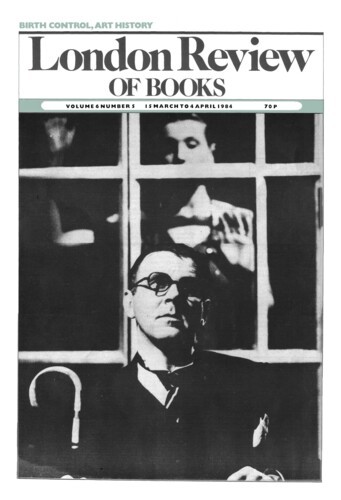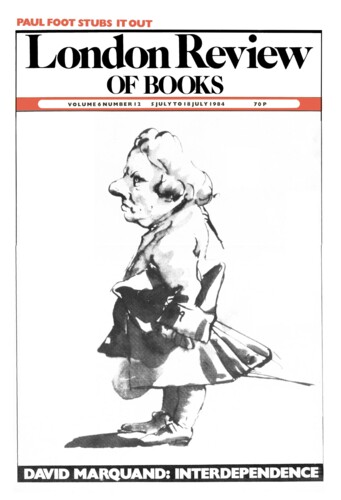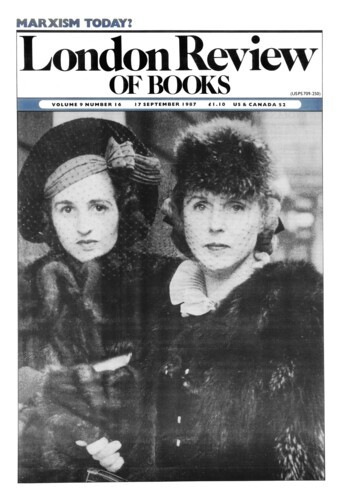Carry on writing
Stephen Bann, 15 March 1984
‘Putting on again joyously the hateful harness’. That is how Robert Pinget’s diffident and slightly dotty narrator, Monsieur Songe, describes the process of taking up his pen yet again, and adding one more to an already considerable cavalcade of novels. Then he crosses out the word ‘hateful’. And then he crosses out the word ‘harness’. Over on this side of the Channel, the native-born author John Braine chooses for his epigraph a snatch of neo-Romantic whimsy from the lyrics of the group Supertramp:



